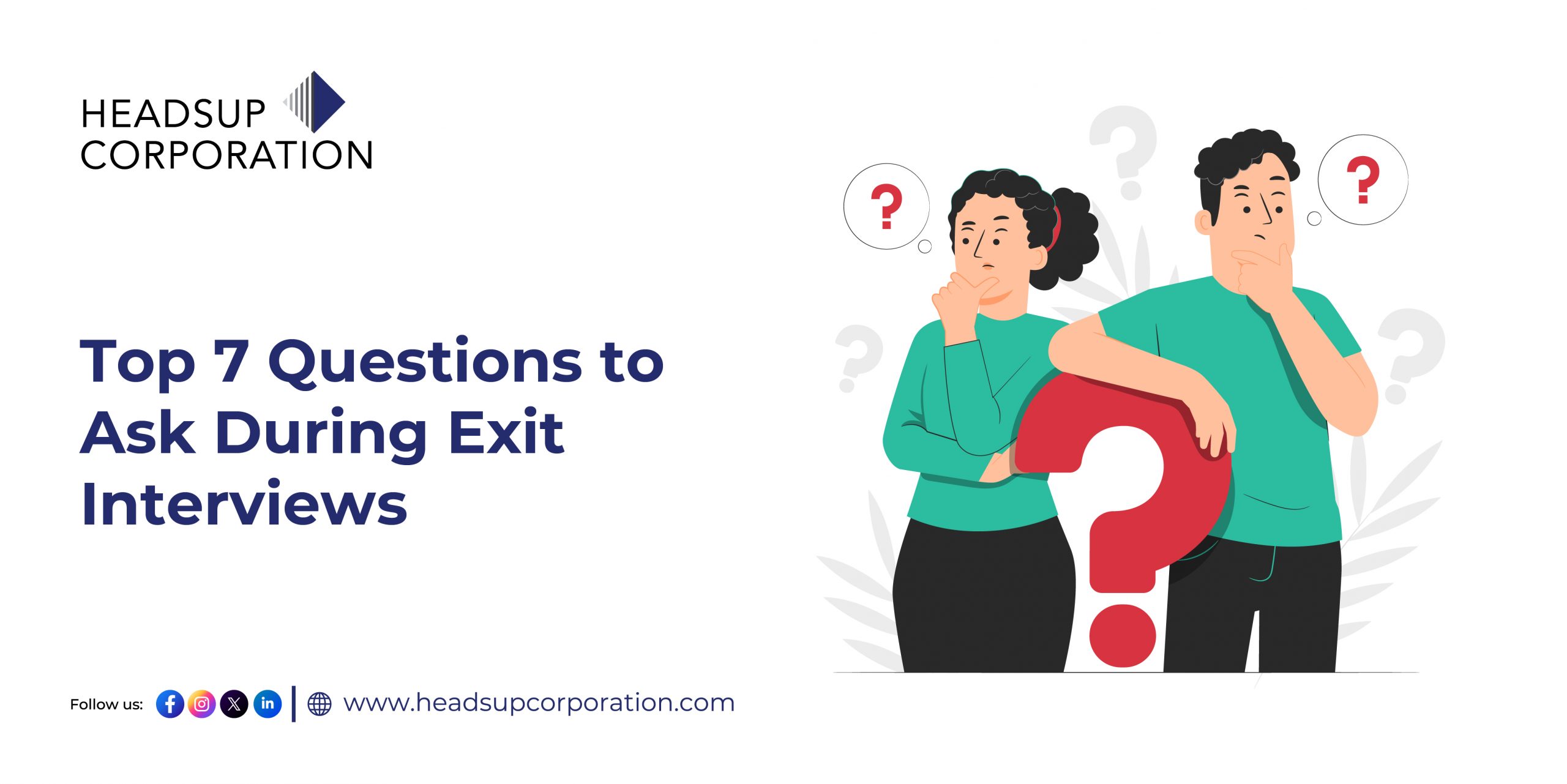Did you know that one in three employees in India leave due to reasons that could have been addressed internally? Exit interviews are a goldmine of insights that help organizations not only understand why employees leave but also identify areas for improvement in engagement, leadership, and culture.
While internal exit interviews are valuable, having a third-party HR service conduct them often yields more authentic and unbiased responses, uncovering actual pain points that employees may hesitate to share with their managers.
Here’s a practical guide to the top 7 questions to ask during exit interviews, designed to maximise insights and help your organisation improve retention strategies.
Top 7 questions to ask during exit interviews
1. Warm-Up: How are you feeling today?
Start with a friendly and open question to create a comfortable environment. A simple warm-up helps employees relax, encouraging candid conversations. It sets the tone for a positive dialogue rather than a defensive or formal interaction.
2. Introduction: Who is conducting this interview?
- If you are an HR internal team member, Briefly explain your role and that the discussion is confidential.
- If you are a third-party vendor: Introduce yourself and your role as an unbiased facilitator. Highlighting independence reassures the employee that their feedback will be heard honestly and safely.
3. Core Question: What prompted you to leave?
This is the critical question that uncovers the root causes of attrition, whether it’s compensation, growth opportunities, work culture, or management style. Understanding this helps organisations address systemic issues rather than treating symptoms.
4. Motivation: Why did you decide to leave when you did?
Beyond reasons, timing matters. Knowing why an employee chose to exit at a particular moment can reveal organisational pressures, unmet expectations, or external opportunities influencing decisions.
5. Feedback: Did you ever voice your concerns internally?
This question helps understand whether employees felt heard during their tenure and if communication channels were effective. If many employees never raised concerns, it may indicate gaps in engagement or trust.
6. Leadership Assessment: Were your seniors helpful? How was the feedback you received?
Employees often leave managers, not companies. This question evaluates leadership effectiveness, mentorship quality, and whether feedback mechanisms were constructive. Insights here inform training, coaching, and managerial development programs.
7. Improvement Suggestions: What is one thing you wish the organisation would improve?
End with a forward-looking question to capture actionable ideas for workplace enhancements. Employees tend to provide practical suggestions when they feel safe and encouraged to share openly.
Why Third-Party Exit Interviews Work
Using an external HR service ensures unbiased, candid feedback. Employees are more likely to share genuine experiences and pain points without fear of reprisal. This transparency allows companies to:
- Identify real reasons behind attrition
Detect patterns across teams or roles - Make informed improvements to culture, policies, and leadership
The Headsup Advantage
At Headsup Corporation, we specialise in providing structured, third-party exit interviews. Our approach involves:
- Ensures employee anonymity for honest insights
- Highlights patterns and trends across teams
- Translates feedback into actionable strategies for retention and engagement
By leveraging Headsup’s expertise, organisations can transform exit data into a continuous improvement engine.
Exit interviews are more than a procedural formality; they are a strategic tool for understanding employee experience and improving retention. Whether conducted internally or by a third-party vendor, asking the right questions in a structured, empathetic manner can turn departures into valuable insights for organisational growth.








